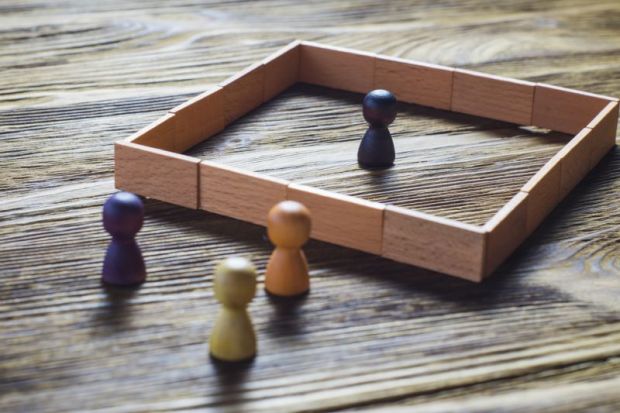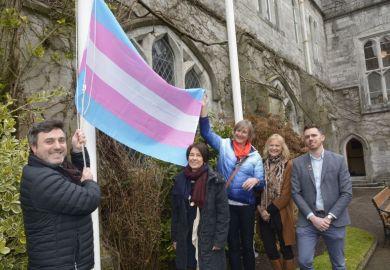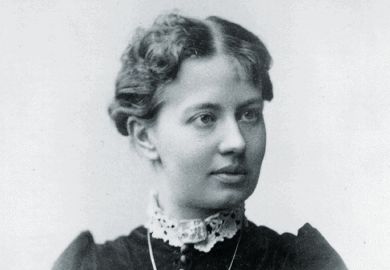The first time that I presented as a trans woman at work our wonderfully friendly porter greeted me as usual, then looked at me quizzically and said, “Why do you look like a girl?”.
I explained that I had been conscious of being trans since I was about seven, but had only now plucked up the courage to publicly acknowledge who I really am. He burst out laughing, then stopped and said, “Oh, you’re serious”. I replied, “Why would I joke about something like that?”
It’s not a joke, but it’s not something to get hypersensitive about either. Anxiety about how you look and sound or how others react to you is understandable, and not just for trans people. But responding defensively when misgendered or dead-named does not, I think, help.
As my colleague Anick, a mentoring administrator in our university’s careers department, said recently when introducing his excellent autobiographical film about another historically occluded group, The Intersex Diaries, we have to “usualise” ourselves. I agree with him that “usualising”, rather than the conforming implications of “normalising”, is a good way to think about
Like many trans people, I hid who I was for far too long from an often hostile heteronormative culture. It is therefore important to me to establish a visibility that generally has been denied us. “Usualising” in this way has been remarkably easy for me so far. The porters all adjusted rapidly. My students were even kind enough to applaud when I came out to them. And the tedious process of changing my name on all the university databases – who knew it appeared so many times – was handled with alacrity.
There are other adjustments as well. On a societal level, while I like to think that I’ve always been conscious of the gendered nature of public spaces and discourse I am, for instance, even more aware now that de Certeau’s network of urban glances are much more male than female. Sociologically, it has been fascinating to notice how both male and female colleagues treat me differently.
In particular, that I am now included in conversations about distinctly female experiences and disadvantages is a form of sharing which is, to me, much more important than passing physically as a woman.
Meanwhile, although I am by no means sure that it passes as female, my voice has undoubtedly changed and for the first time in my career, students are asking me to speak up.
The focus on “usualising” has meant that my head of school and I decided against making some special announcement about my transitioning. Accordingly, many colleagues learned about my transition through word of mouth or when doing a double take along a corridor. On one hand, I had to keep coming out to people, not that someone who earns a living by explaining things should find that too much of a chore.
But on the other, it meant that the news of my transition was conveyed on a human scale, rather than officially. People were responding to the human being they already knew, albeit in a slightly different persona, rather than to a stereotype.
Not that I’ve met much stereotyping at my university, where trans people come in all varieties among both the students and staff. I’ve certainly encountered all kinds of stereotyping in other settings, some of which would be hilarious if it did not have such serious consequences on people’s lives.
Only through acknowledging that every trans person is different, and “usualising” it as part of humanity’s own rich diversity, can we work towards eliminating some of that dangerous stereotyping. No one should have to feel suicidal, as I did for much of my life, simply because they do not fit into some societally imposed norm.
When I explained this at the start of my paper at a recent conference on church history, someone in the audience shouted “praise God!”. It was an unexpected reaction to a coming-out narrative. However, if it helps to “usualise” us, I’m all for it.
Pippa Catterall is a transgender woman and professor of history and policy at the University of Westminster.
Register to continue
Why register?
- Registration is free and only takes a moment
- Once registered, you can read 3 articles a month
- Sign up for our newsletter
Subscribe
Or subscribe for unlimited access to:
- Unlimited access to news, views, insights & reviews
- Digital editions
- Digital access to THE’s university and college rankings analysis
Already registered or a current subscriber?




